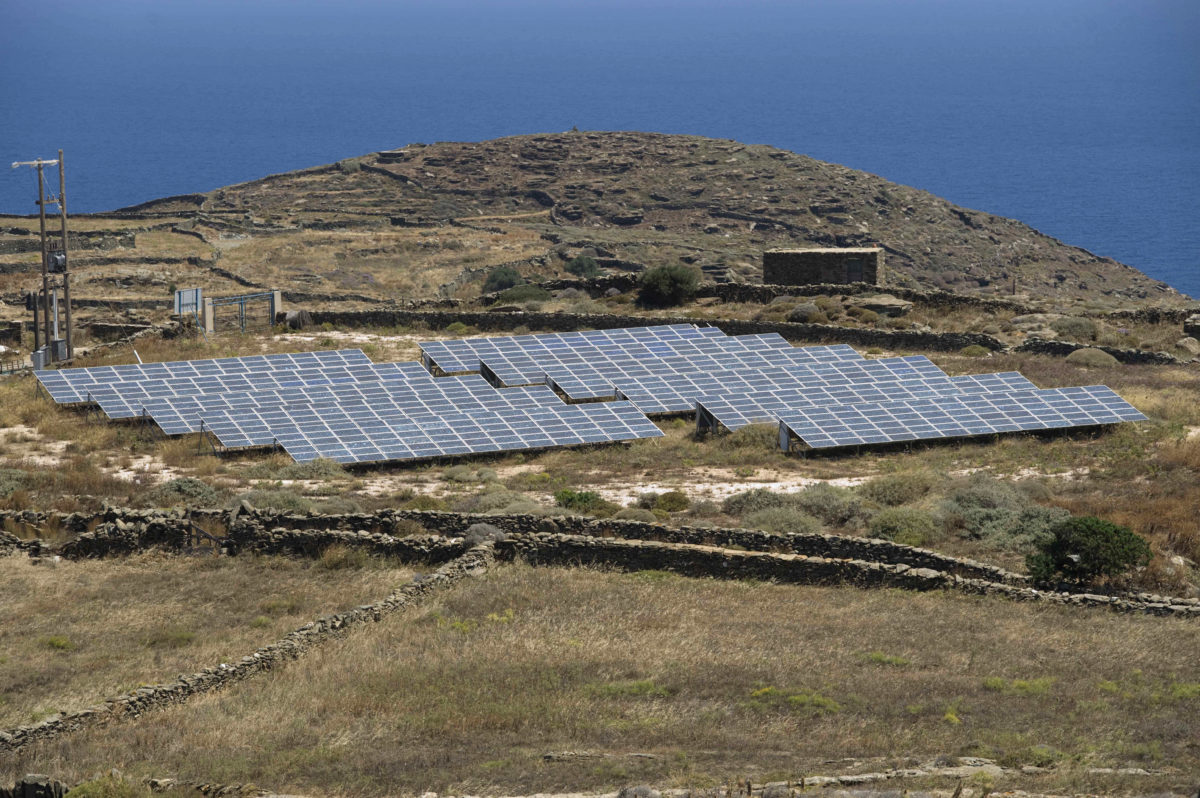Far from being slowed by the impact of Covid-19, the Greek parliament has been active of late, with work including a planned electric vehicle (EV) policy and a comprehensive bill encompassing renewables, environmental planning, waste management and mining.
EVs
The government hopes to present its EV bill to parliament this summer after a consultation exercise which closes today.
The legislation proposes financial incentives for the purchase of EVs as well as the installation of a public charging network.
George Stassis, chief executive of national electric utility the Public Power Corporation (PPC), has previously outlined an intent to install 1,000 charging points within three years, rising to 9,000 at a later date.
Prime minister Kyriakos Mitsotakis has presented the proposed EV policy as a strategic part of the nation’s development program and Stassis said the utility had “lost the renewable energy train and fights now to jump on it. I don’t want the same to happen in electric mobility.”
Speeding the environmental license process
The EV bill follows the introduction, in May, of environmental law 4685/2020. That comprehensive legislative package aims to speed up the environmental permitting process through measures such as allowing the development of PV plants with a generation capacity of up to 1 MW without an environmental license.
Environment and energy minister Kostis Hatzidakis said the fact the previous system gave only indicative timescales for the granting of environmental permits meant such paperwork could take up to eight years to be granted. Under Law 4685/2020, PV plants bigger than 1 MW must have applications for the 15-year environmental permits decided within four-and-a-half months.
With understaffed public departments asked to speed up the process, the government settled on the solution of contracting out environmental permitting to private-sector companies, albeit with an insistence state institutions make the final decisions.
That move, however, has raised concern among NGOs and the opposition in Greece, who fear it may erode environmental protections.
Natura zones
Popular content
Another point of contention raised by the implementation of Law 4685/2020 concerned development of protected natural areas, known as natura zones.
The Greek government is resisting calls from NGOs for all commercial activity to be barred from protected areas and instead is attempting to further define the areas, which feature rare species and habitats. The plan is to designate four types of protected area, with commercial activity barred in two of them but permitted, subject to environmental regulation, in the other two.
Digitized licensing process
The new legislation also ushered in a critical reform of the generation licensing process for renewables projects.
Clean energy plants bigger than 1 MW need a generation license to be eligible to participate in national renewable energy auctions and with issuing body the Greek Regulatory Authority (RAE) unable to process the volume of applications, investors until recently had to wait an average of 18 months to receive the paperwork. The situation was such that, a year ago, more than 6 GW of solar project capacity was awaiting generation licenses.
Law 4685/2020 provides for replacement of the previous license with a certificate which can be applied for and issued online, with the RAE required to issue them within 20 days of developers paying a €60 certificate application fee. Only the barest details, such as project capacity and location, are required at the initial stage, with developers charged a fee determined by project capacity once the generation certificate has been issued.
The law sets three annual windows for online certificate applications: in February, June and October. The RAE last month cleared the backlog of applications for the old-style licenses by issuing certificates and online applications for new projects will be opened in October. The national renewable auction planned on July 27 will require the old-style licenses but procurement rounds after that will shift to the digital certificate system.
The new system sets strict time limits for project commissioning. For example, although the online generation certificates are valid for 25 years, they are revoked if developers do not submit an environmental study within six months.
The legislation package was welcomed by Stelios Psomas, policy advisor at the Hellenic Association of Photovoltaic Companies (HELAPCO), who told pv magazine digitization, speeding up environmental permitting and the introduction of a tracking system to follow the progress of investments were all highlights.
This copy was amended on 01/07/20 to reflect George Stassis is chief executive of the PPC utility, not Konstantinos Mavros, as previously stated. The copy was also changed to reflect the charging point numbers mentioned were part of a previously-announced PPC business plan, the actual numbers in the proposed EV policy have not been reported.
This content is protected by copyright and may not be reused. If you want to cooperate with us and would like to reuse some of our content, please contact: editors@pv-magazine.com.


1 comment
By submitting this form you agree to pv magazine using your data for the purposes of publishing your comment.
Your personal data will only be disclosed or otherwise transmitted to third parties for the purposes of spam filtering or if this is necessary for technical maintenance of the website. Any other transfer to third parties will not take place unless this is justified on the basis of applicable data protection regulations or if pv magazine is legally obliged to do so.
You may revoke this consent at any time with effect for the future, in which case your personal data will be deleted immediately. Otherwise, your data will be deleted if pv magazine has processed your request or the purpose of data storage is fulfilled.
Further information on data privacy can be found in our Data Protection Policy.